Japanese businesses, ITTO share insights on engaging communities in forest and carbon projects
17 March 2025, Tokyo
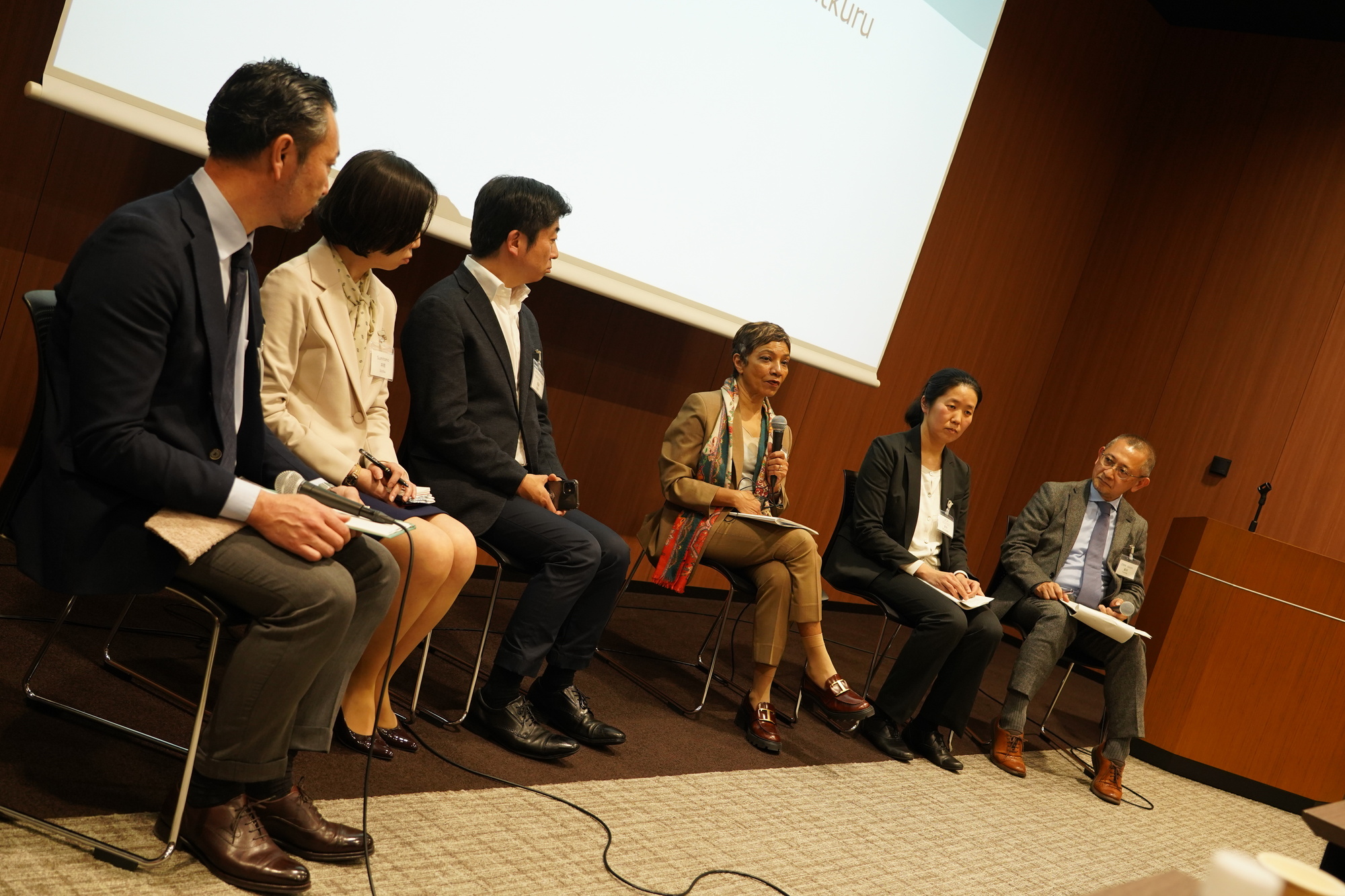
ITTO engages with the private sector to explore potential opportunities for partnerships on forestry and carbon projects. Photo: Paula Sarigumba/ITTO
Leading Japanese forestry authorities, financial and industrial companies participated in a recent ITTO networking event to discuss how to build stronger relationships with local communities and overcome other challenges in forest projects, including carbon projects.
Sustainability experts from Sumitomo Mitsui Financial Group, Sumitomo Corporation, INPEX Corporation, Japan International Cooperation Agency (JICA), and several others joined ITTO Executive Director Sheam Satkuru (and other ITTO colleagues) at the event, titled “How to Build Good Partnerships with Local Communities in Creating Forest Carbon Credits,” held in Tokyo on 28 February 2025. The event was moderated by Mr Tomita Hiroshi, Partner from Environmental Resource Management (ERM) Japan.
In the opening session, Ms Satkuru introduced the organization, its mission on sustainable forest management and legal and sustainable trade, and the projects and activities it undertakes. This was followed by Ms Miki Himeno from ERM, who discussed benefit sharing in forest carbon projects. ITTO's Director of Forest Management, Jennifer Conje, then explained the concept of carbon credits and forest carbon credit projects, highlighting case studies of ITTO forestry initiatives that have fostered strong relationships with local communities in carbon projects and beyond.
The presentations were followed by a panel discussion on challenges faced by the private sector and possible solutions in strengthening ties with local partners and communities.
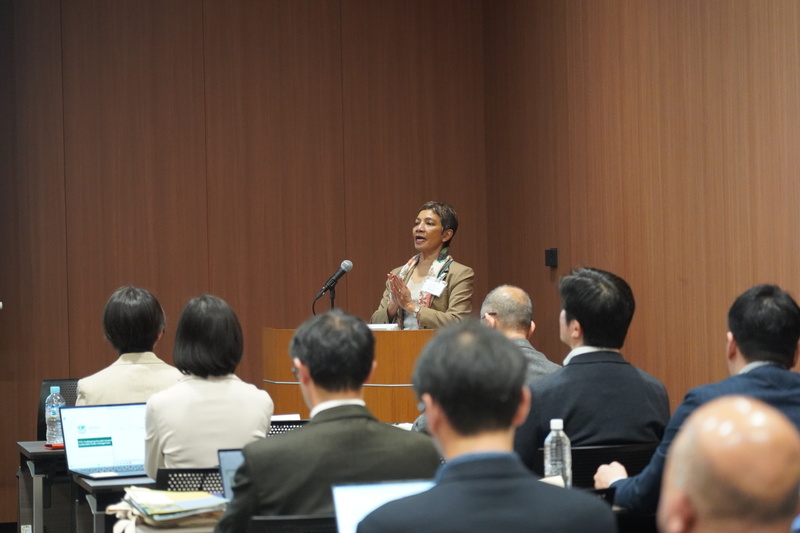
The challenges in carbon projects
The private sector experts highlighted difficulties in finding partner organizations with established relationships with local communities as well as the capacity to implement large-scale projects.
Disputes over benefit-sharing and payment distribution were another key challenge, with conflicts arising over incentives and local capacity, including through payments for ecosystem services (PES) schemes.
The experts also pointed to the need for upfront investments before forest projects can generate carbon credits and revenue, meaning that only financially robust companies are able to lead such projects.
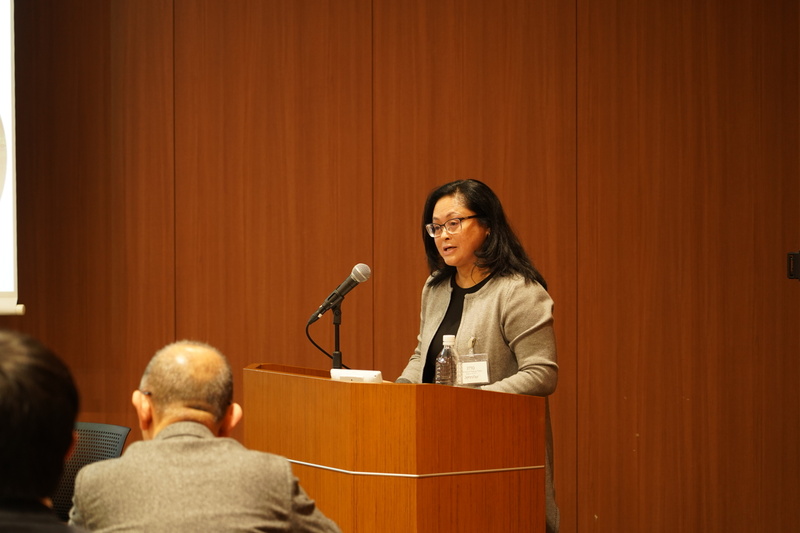
ITTO’s solutions
The ITTO Executive Director said that “while the Organization has encountered similar issues in some of its projects, it implements forest projects with support from host country governments and can leverage the authorities’ networks to strengthen execution.”
“ITTO works to create incentives for local communities and mechanisms to support incomes, for instance, through intercropping and agroforestry”, Ms Satkuru added. ITTO also stated the need to encourage the circularity of funds, which allows for income to be continuous for the local communities and encourages greater community engagement.
The panel also heard how ITTO builds community support for projects by enhancing women’s participation. Women can be motivated, for instance, through the importance of their role and how their involvement in a project can meet needs such as children’s education and food expenses, and positively impact their community and their livelihoods.
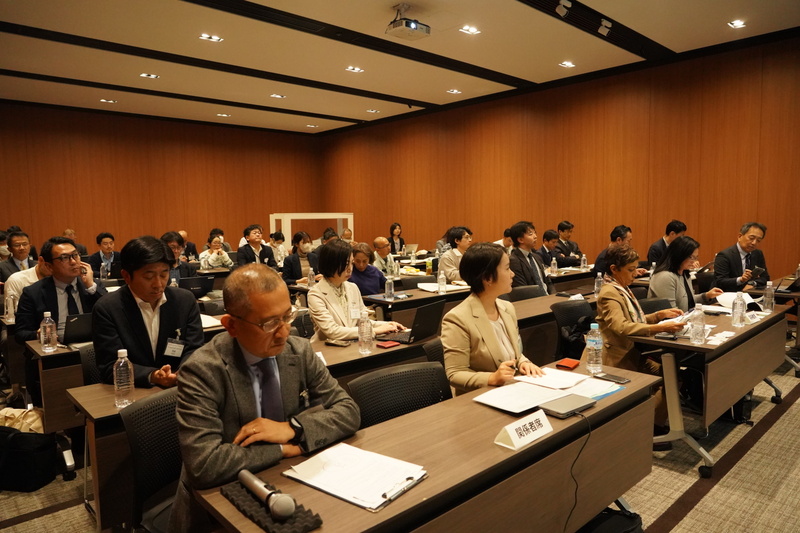
In the second half of the discussion, the panelists raised and discussed key considerations for generating carbon credits.
One major point is ensuring that baseline estimates of forest carbon at the outset of a project are not inflated. Other important factors include the assessment of environmental and social risks, including whether human rights and land-ownership issues have been considered, and evaluating the track record and reliability of organizations involved in the projects.
The panelists noted that institutions like ITTO could play a valuable role in enhancing project governance and the reliability of project partners.
ITTO’s work on forest carbon projects
Enhancing carbon sequestration and storage in natural and plantation forests across the tropics is a key objective of the ITTO’s work to support sustainable forest management and trade in legally and sustainably produced forest products.
Some ITTO projects include measures to facilitate access for communities and wood industries to voluntary carbon markets, which can provide an additional incentive for the conservation and sustainable use of tropical forests.
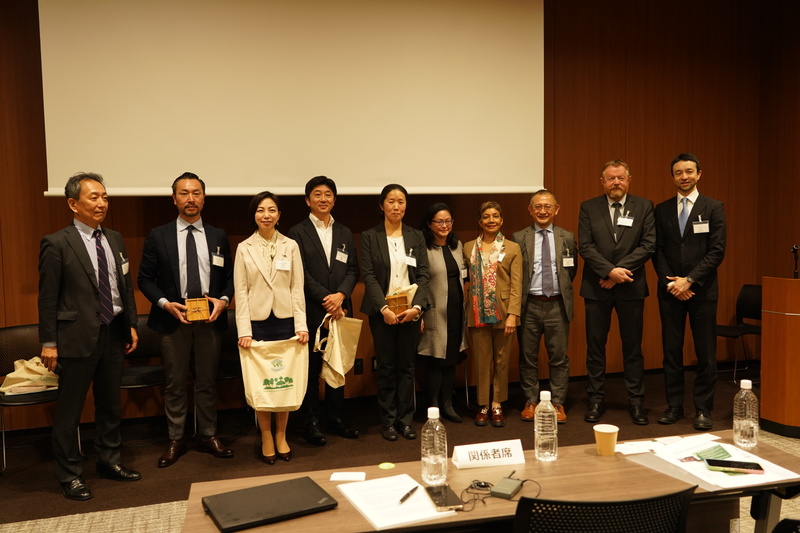
Furthermore, ITTO has developed knowledge products and capacity-building initiatives to assist its member countries in navigating the complexities of forest carbon projects. For example, the Technical Guide on the Quantification of Carbon Benefits in ITTO Projects (Technical Series 43) and Wood Product Accounting and Climate Change Mitigation Projects Involving Tropical Timber have provided valuable insights to agencies on optimizing forestry projects and maximizing carbon benefits.
The ITTO intends to continue with similar valuable networking exercises in the future and welcomes parties of interest to contact the ITTO.
Related links:
- Technical Guide on the Quantification of Carbon Benefits in ITTO Projects (Technical Series 43)
- Wood Product Accounting and Climate Change Mitigation Projects Involving Tropical Timber
- Quantifying the REDD+ effect of ITTO projects
